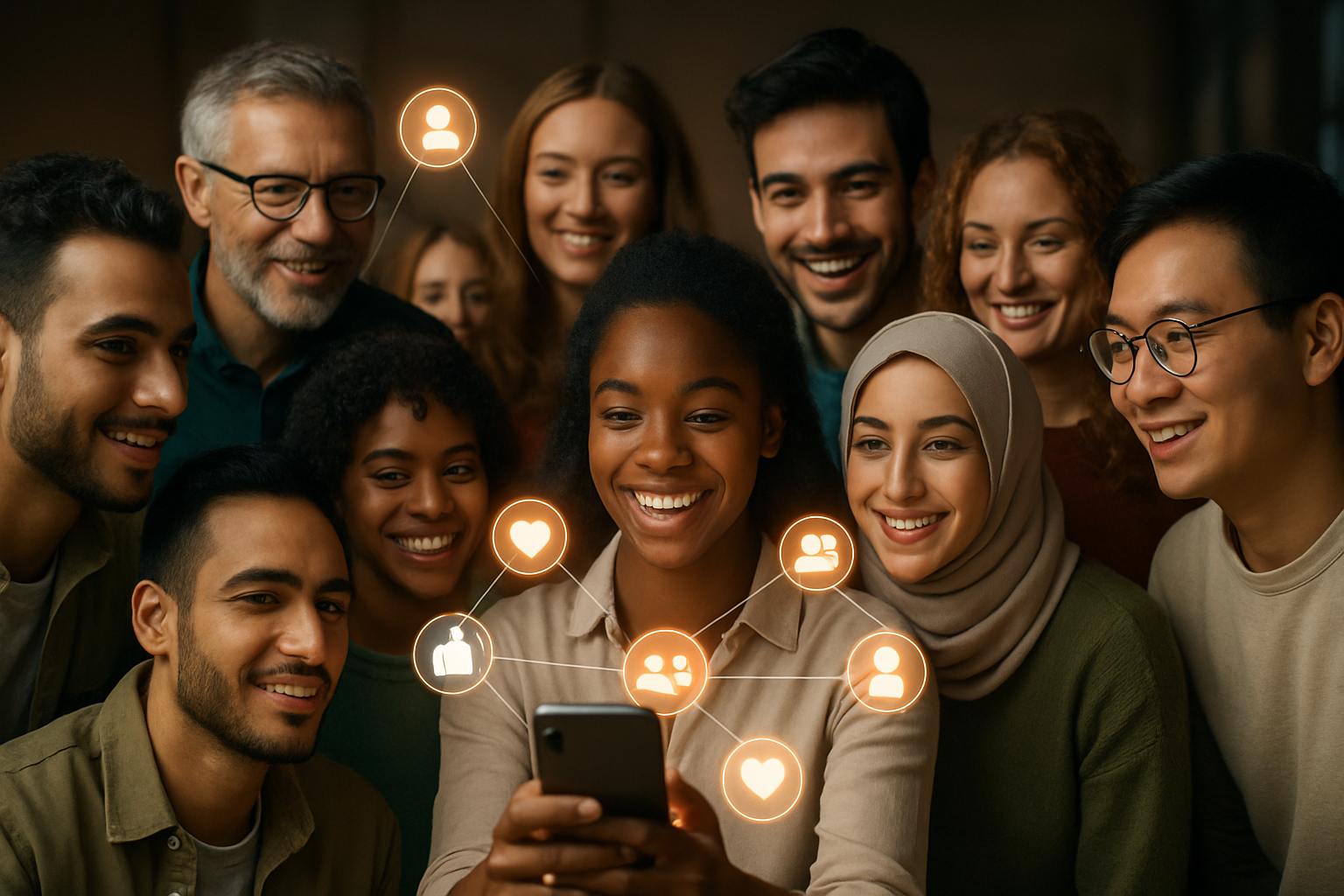Neurodiverse Friendships: A New Social Paradigm
In a world that's increasingly embracing diversity, a fascinating shift is occurring in social dynamics. Neurodiverse friendships - relationships between neurotypical individuals and those with neurodevelopmental differences - are becoming more prevalent and celebrated. This evolving social landscape is reshaping our understanding of connection, empathy, and human potential.

As awareness grew, so did the understanding that neurodiversity encompasses a wide range of cognitive styles and experiences. This broader perspective paved the way for more inclusive social interactions and the formation of neurodiverse friendships.
Breaking Down Barriers: The Rise of Neurodiverse Social Circles
Historically, individuals with neurodevelopmental differences often faced social isolation or were limited to friendships within their own neurodiverse communities. However, recent years have seen a significant shift in this dynamic. Inclusive education practices, workplace diversity initiatives, and increased media representation have all contributed to creating more opportunities for neurodiverse and neurotypical individuals to interact and form meaningful connections.
Social media and online communities have played a crucial role in facilitating these friendships. Platforms dedicated to neurodiversity awareness and support have become virtual meeting grounds where individuals can connect based on shared interests rather than neurological similarities or differences.
The Unique Dynamics of Neurodiverse Friendships
Neurodiverse friendships often exhibit unique characteristics that set them apart from typical social relationships. These friendships tend to be built on a foundation of mutual understanding and acceptance of differences. Neurotypical friends often report developing enhanced empathy and patience, while neurodiverse individuals frequently experience increased confidence and social skills.
Communication in these friendships can be both challenging and rewarding. Misunderstandings may arise due to differences in processing information or expressing emotions. However, many find that these challenges lead to more direct and honest communication, as both parties learn to articulate their needs and perspectives more clearly.
Societal Benefits of Neurodiverse Friendships
The rise of neurodiverse friendships has far-reaching implications for society as a whole. These relationships serve as microcosms of inclusion, challenging stereotypes and promoting understanding across neurological differences. As more people engage in neurodiverse friendships, societal attitudes towards neurodevelopmental conditions are gradually shifting from fear and misunderstanding to acceptance and appreciation.
Workplaces and educational institutions are beginning to recognize the value of neurodiversity in fostering innovation and creativity. Neurodiverse friendships in these settings can lead to unique collaborations and problem-solving approaches, benefiting organizations and communities alike.
Navigating Challenges and Fostering Growth
While neurodiverse friendships offer numerous benefits, they are not without challenges. Sensory sensitivities, differing social expectations, and communication styles can sometimes lead to misunderstandings or conflicts. However, many find that working through these challenges leads to personal growth and deeper connections.
Education and awareness play crucial roles in fostering successful neurodiverse friendships. Many organizations now offer workshops and resources to help individuals better understand and appreciate neurodiversity. These efforts are essential in creating a more inclusive society where neurodiverse friendships can flourish.
The Future of Social Connections
As we look to the future, the trend towards neurodiverse friendships is likely to continue growing. This shift represents a broader societal movement towards embracing all forms of human diversity. By valuing and nurturing these relationships, we create a richer, more inclusive social fabric that benefits everyone.
The increasing prevalence of neurodiverse friendships challenges us to reconsider our understanding of social norms and communication. It invites us to embrace a more flexible and inclusive approach to human connection, one that celebrates the unique strengths and perspectives each individual brings to a relationship.
In conclusion, neurodiverse friendships are more than just a trend; they represent a fundamental shift in how we view and value human differences. As these relationships become more common, they have the potential to transform our communities, workplaces, and society at large, creating a world where everyone’s neurological makeup is respected and celebrated.






